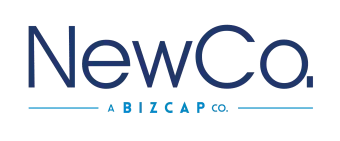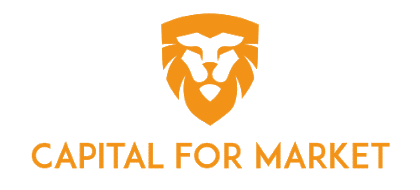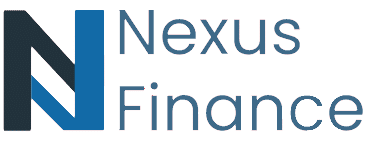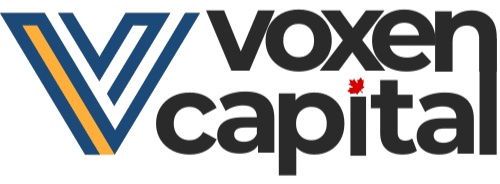Compare Lenders
Discover Popular Financial Services
The Canadian E-Commerce Market
Canada is home to the ninth largest e-commerce market in the world; in 2019, Canadian e-commerce retail sales amounted to almost $1.85 billion, with approximately 75% of Canadians having made purchases online. Although the top three online stores (Amazon, Wal-Mart and Costco) account for 35% of online revenue in Canada, there are nevertheless a huge number of other players – over 8,000 in total. These businesses vary in size and market, but one trend is clear: Canadian consumers prefer to buy Canadian, with 62% stating this preference. This is in part why the Canadian e-commerce market is still growing, with new businesses entering the sector daily.
Financing Problems Online Businesses Face
The majority (85%) of Canadian businesses get their financing from a bank or credit union, but this may simply not be an option for an online business – especially a new one. Most loan applications to these traditional lenders need to be supported by historical financial data for the company, business licenses, and articles of incorporation or other organizational documents, and may require collateral. This isn’t a problem for a brick-and-mortar business with property, equipment, stores of physical inventory, or a long financial history, but it’s a huge barrier to entry for online companies.
Financing Solutions for Online Businesses
Luckily, traditional loans from banks and credit unions are not the only way to go. In fact, online businesses have quite a few alternatives:
Business Line of Credit
A business line of credit is a great option for companies needing occasional, incremental injections of cash – so they perfectly suit online businesses with potentially inconsistent revenues. They can be used for working capital, one off investments (like an advertising campaign), or for emergency expenses.
A line of credit is like a credit card, in that you can borrow as and when you need, in whatever denominations you like, up to a pre-approved limit. You pay interest only on what you borrow, and can pay back the funds as you’re able. They tend to have higher limits than credit cards, and can be secured against collateral, meaning you may be able to access better interest rates too.
Inventory Financing
Inventory financing is best suited to situations where an online business has a sudden influx of orders, but lacks the funds to produce and fulfill these orders. A business can borrow the funds to produce the items for sale (the lender often pays the manufacturer or supplier directly), and then the lender gets paid back once the sales are completed. Interest rates on inventory financing tend to be pretty competitive, as the lender knows the orders have already been received, and so are a fairly safe bet.
Receivables Financing
Receivables financing is when a company borrows money – in the form of a cash advance – against unpaid invoices for past work/sales. As payment and settlement cycles in the e-commerce world can be elongated, this is a helpful way to maintain steady cash flow, but it is a short term solution and not appropriate for long term financing needs.
Revenue Capital Loans
Revenue capital loans are a relatively new loan product that allow a business to borrow money, with the intention of investing it in areas that will drive sales. The intent is to boost sales and then pay back the loan via a percentage of sales revenues. This provides flexibility, as debt repayments fluctuate with sales, so you’re not stuck in months with little income. However, this is not an appropriate form of financing for startup costs or working capital.
Traditional Small Business Loans
A small business loan may not be a viable option if you have a new e-commerce business, but if you have a proven track record then you may qualify for one. These loans can be competitive in terms of rates and terms, and are best for larger loans. They take some time to apply for and get, so are not suited to short term financing needs, or those seeking flexibility. Most small businesses get their small business loan from a bank or credit union, but there are also governmental options and grants.
Business Credit Cards
A business credit card is much like a personal credit card, but it is primed for business-related use; you can have multiple authorized users, and it allows for maximum flexibility. However interest rates on credit cards are high, so this is not a long term financing solution, but rather a useful way to borrow small amounts on occasion.
Payment Service Provider Loans
It may also be possible to receive a form of cash advance from your payment service provider; the amount borrowed is then paid off as a percentage of the company’s incoming funds. This is another form of financing that allows a loan to be paid back in proportion to how profitable your business is, so there is less pressure to meet a set monthly debt payment. However, this is a short term solution, meant for flexibility rather than structural assistance.
Other Ways to Finance Your Online Business
A loan is not the only route to finance your online business; there are others, each with their own pros and cons. This includes:
- Bootstrapping
- Venture capital investment
- Crowdfunding
- Angel investors
- Peer to peer investment
- Private equity investment
How to Find Appropriate Business Financing
It may seem a little overwhelming when choosing the right business financing for your needs, but you can narrow down your options by asking yourself some simple questions:
- How much money do I need to borrow, and for what purpose?
- How quickly do I need the money?
- How long do I need financial help for?
- Am I able to make set monthly debt payments, or do I need repayment flexibility?
- Am I willing to pay interest on a loan, or would I prefer to forfeit some equity in my business, or a share of my profits?
These questions will help you understand what type of loan best suits your needs. Next you need to talk to loan providers who specialize in the type of financing you’re looking for, to compare rates and fees and find the most affordable option for you. Remember to check out their past customer reviews as well, to be sure you’re working with a reputable loan company.
Frequently Asked Questions About Online and E-Commerce Business Loans
Can I get a loan for a new online business?
Yes, it is possible to get a loan for a new online business, but you probably won’t be able to get a traditional business loan. A traditional loan requires historical business financial documents, which you won’t have for a new venture, so you’ll need to consider an alternative lender or loan type to access the funding you need.
How much can I borrow with an online business loan?
The amount you can borrow with a business loan for an online or e-commerce business depends on lots of factors: the type of loan you use, the loan provider, your business’s size and revenues, the duration of the loan, the longevity of the business, and so on. In theory, qualified businesses can borrow as much as $500,000, but fledgling and smaller companies will struggle to borrow this much.
How quickly can I get financing for an online business?
The speed with which you can obtain business financing depends on the type of loan you apply for, the loan company you use, and your business’s details. Some smaller loans are very quick and easy to obtain, as they are specifically geared for short term cash flow issues. Others, like larger and more traditional business loans, may take several weeks to process.
What do I need to qualify for an e-commerce business loan?
Qualifying for an e-commerce business loan depends on what kind of loan you choose. Some (like receivables financing) require you to have invoices waiting to be settled; others, (like lines of credit or business credit cards) simply need you to have some basic information about your business. Larger, more traditional loans are harder to qualify for, and smaller, short term loans are easier. In general, it’s sensible to collect as much information as you can before applying for any business loan; you should try to have a business plan, projected revenues, past financial data if possible, as well as information on any collateral that may help secure the loan. This will make your loan application process as easy as possible.
Can I get an e-commerce business loan from my bank?
It may be possible to get an e-commerce business loan from your bank, but you’ll need quite a few documents relating to the running of your business over at least the last two years. This includes financial statements, tax reports, a business plan, credit score, and financial information for the business owners. If you don’t have these items (for example, if you have a new business), then your bank is unlikely to be able to help you.
Explore more
Similar products
- bad credit business loans
- coffee shop business loans
- expansion business loans
- auto shop business loans
- food grocery store business loans
- home business loans
- invoice factoring
- medical dental practice business loans
- mid market financing
- point of sale financing
- restaurant business loans
- salon spa business loans
- business credit lines
- business loan application keep
- clothing store business loans
- business loans usa
- emergency business loans
- gym fitness club business loans
- inventory business loans
- marketing business loans
- merchant cash advance business loans
- ecommerce business loans
- renovation business loans
- retail store business loans
- working capital loans
Why Choose Smarter Loans?

Access to Over 50 Lenders in One Place

Transparency in Rates & Terms

100% Free to Use

Apply Once & Get Multiple Offers

Save Time & Money

Expert Tips and Advice





























